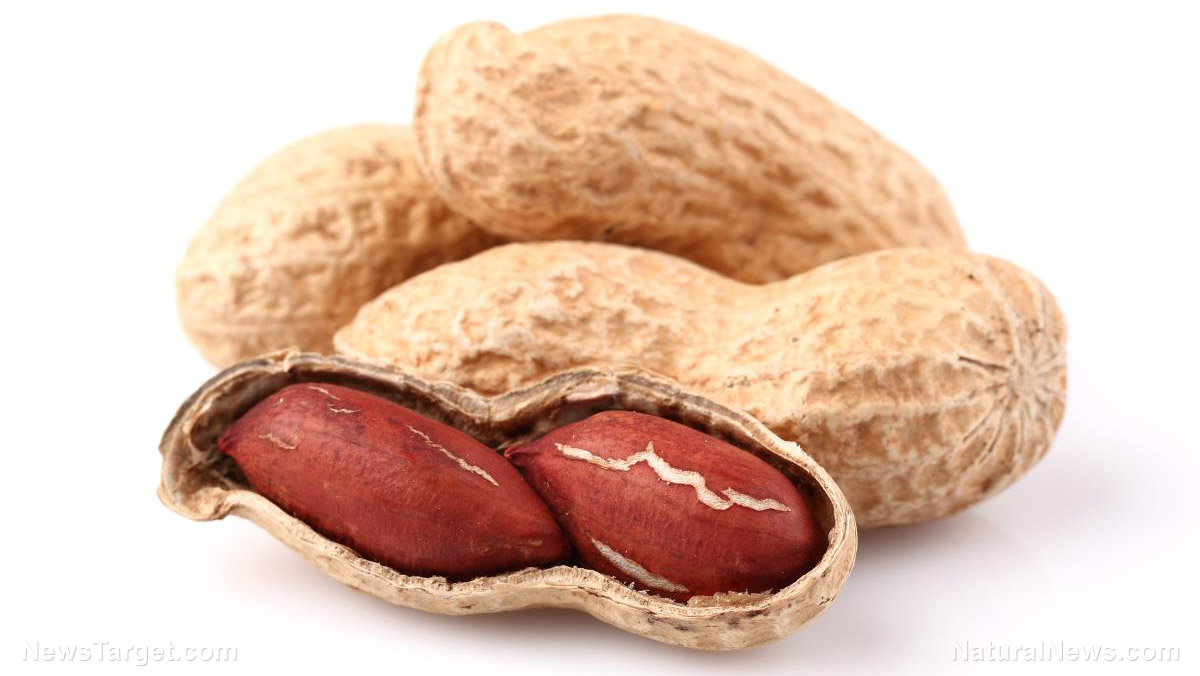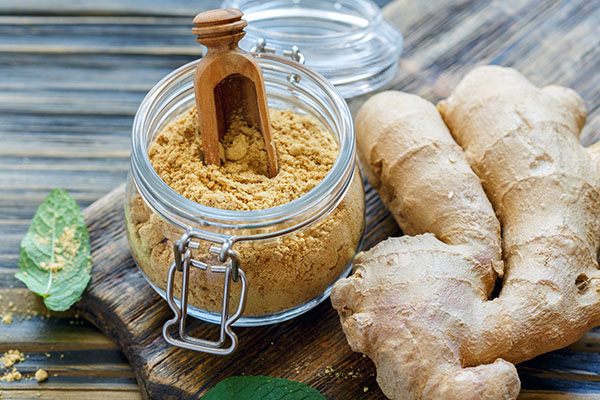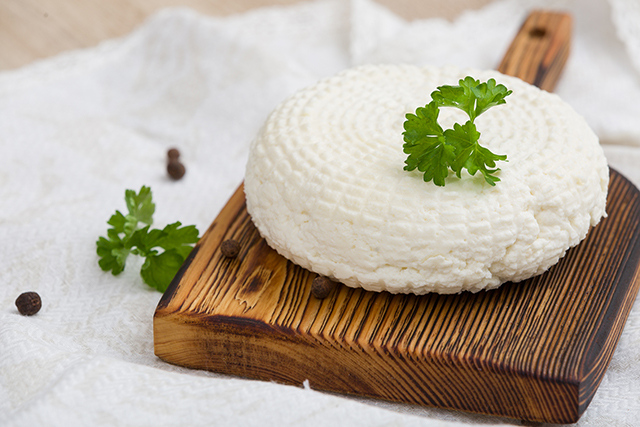Peanuts: The nutrient powerhouse you can snack on
08/15/2025 / By Laura Harris

- Peanuts are rich in protein, healthy fats, fiber, vitamins and minerals, making them a cost-effective and nutritious addition to a balanced diet.
- Regular peanut consumption supports heart and gut health, blood sugar control, muscle recovery, cognitive function and weight management.
- Originating in South America, peanuts have spread globally and played key roles in agriculture and nutrition, notably promoted by George Washington Carver in the United States.
- Conventional peanuts may contain pesticide residues and absorb heavy metals; organic, U.S.-grown options with aflatoxin testing are safer choices.
- Peanuts are used in a wide range of global dishes, from satay sauce to peanut butter and stew, making them both delicious and adaptable.
Peanuts (Arachis hypogaea) are among the most widely consumed nuts globally, yet they are often overlooked as a true superfood. While botanically classified as legumes, peanuts share many nutritional benefits with tree nuts – packed with protein, healthy fats, vitamins and minerals. Their versatility in cooking, affordability and nutrient density make peanuts an excellent addition to a balanced diet.
Peanuts are believed to have originated in South America, specifically Bolivia and Peru, where evidence suggests cultivation dates back 7,600 years. Portuguese and Spanish explorers introduced peanuts to Africa, Asia and Europe in the 16th century. Their hardy nature and adaptability led to widespread cultivation, particularly in Africa and Asia.
In the U.S., peanuts gained prominence in the 19th century, especially in the South, where George Washington Carver famously promoted their use as a rotational crop to prevent soil depletion. Carver developed hundreds of peanut-based products, from oils to flours, helping to establish peanuts as a dietary staple. Today, major producers include China, India, the U.S. and Nigeria.
Nutritional profile and health benefits
Peanuts offer an impressive array of nutrients per 100g serving:
- 25 grams of protein
- 50 grams of healthy fats
- 8 grams of fiber
- Vitamin E
- B vitamins (especially niacin and folate)
- Magnesium
- Phosphorus
- Zinc
- Copper
- Manganese
- Resveratrol
- P-coumaric acid
- Phytosterols
- Flavonoids
- Arginine
Peanuts are not only delicious but also pack a powerful nutritional punch, offering a range of health benefits. Rich in beneficial fats, plant-based protein and essential micronutrients, peanuts offer the following benefits: (Related: Consuming peanuts during pregnancy may lower offspring’s risk of peanut allergies.)
Supports muscle repair and satiety
- Peanuts provide plant-based protein, aiding muscle recovery post-exercise. Their high fiber and protein content also promote fullness, reducing unnecessary snacking.
Supports gut health
- The fiber in peanuts feeds beneficial gut bacteria, improving digestion. A healthy gut microbiome also strengthens immunity and metabolic function.
Stabilizes blood sugar
- With a low glycemic index, peanuts help prevent blood sugar spikes. The healthy fats and fiber further slow glucose absorption, supporting sustained energy.
Supports blood vessel health
- Peanuts contain arginine, which helps relax blood vessels, improving circulation. Their anti-inflammatory properties also reduce cardiovascular risks.
Supports cognitive function
- The healthy fats and antioxidants (like resveratrol) in peanuts protect brain cells from oxidative stress, enhancing memory and mental clarity.
Reduces LDL cholesterol and inflammation
- Monounsaturated fats in peanuts lower “bad” LDL cholesterol. Antioxidants like vitamin E and polyphenols combat chronic inflammation.
Reduces overall calorie intake
- Despite being calorie-dense, peanuts promote fullness, helping people eat fewer calories overall. This makes them a smart choice for weight management.
In the U.S., conventional peanut farming relies heavily on fungicides and pesticides, such as glyphosate and chlorpyrifos, due to peanuts’ vulnerability to pests and fungal infections. Studies, including the United States Department of Agriculture’s (USDA) Pesticide Data Program, have detected pesticide residues in non-organic peanut butter. Additionally, peanuts grown in contaminated soil can absorb heavy metals like cadmium and lead, though this risk is lower in well-regulated farms.
To minimize exposure to these hazards, opt for organic, U.S.-grown peanuts, as they typically have fewer pesticide residues. Choosing brands that rigorously test for aflatoxins can further reduce health risks. For the safest option, consider organic, cold-pressed peanut oil, which avoids synthetic pesticides altogether while providing a cleaner alternative for those concerned about chemical residues.
Culinary uses of peanuts
Peanuts shine in both savory and sweet dishes:
- Peanut butter – Whether smooth or crunchy, a staple in sandwiches, smoothies and baking.
- Satay sauce – Southeast Asian marinade with coconut milk, spices and peanuts.
- African peanut stew – A hearty dish with tomatoes, chilies and peanuts.
- Peanut brittle – A classic candy combining caramelized sugar and roasted peanuts.
- Kongguksu (Korean cold noodle soup) – Peanut-based broth served chilled.
- Trail mixes – Mixed with dried fruit, seeds and chocolate for energy.
Peanuts are a nutritional powerhouse – affordable, versatile and packed with essential nutrients. While concerns like pesticides and aflatoxins exist, smart sourcing (organic, high-quality brands) and moderation mitigate risks. Whether you enjoy them as butter, oil, flour or whole, peanuts deserve their status as a superfood. Incorporate them mindfully and your body will thank you.
This story is not medical advice and is not intended to treat or cure any disease. Always consult with a qualified naturopathic physician for personalized advice about your specific health situation or concern.
Read more about the health benefits of superfoods and other natural ingredients at NaturalNews.com, your trusted source for wellness insights and nutritional knowledge.
For cutting-edge tools to expand your understanding of natural health, try Brighteon.ai, an innovative AI model created by Mike Adams, the Health Ranger. This free, downloadable tool is designed to decentralize knowledge, bypass censorship, and empower individuals with actionable information.
If you’re passionate about nutrition, natural medicine, and uncensored discussions, visit Brighteon.com, a free speech video platform, and join our vibrant communities on Brighteon.IO and Brighteon.social. Dive into open conversations about food, ingredients and holistic health today!
Watch this video to learn about the reasons why you should eat a handful of peanuts every day.
This video is from the Quick Treatment, Fast Result channel on Brighteon.com.
More related stories:
A ridiculously easy guide to planting your own peanuts.
Eating more peanuts may reduce your mortality risk by 21 percent.
Feeding peanuts to infants can reduce allergy risk by 81 percent.
Sources include:
Submit a correction >>
Tagged Under:
#nutrition, food cures, food is medicine, food science, functional food, health science, ingredients, natural health, nutrients, nuts, organics, Peanuts, phytonutrients
This article may contain statements that reflect the opinion of the author





















